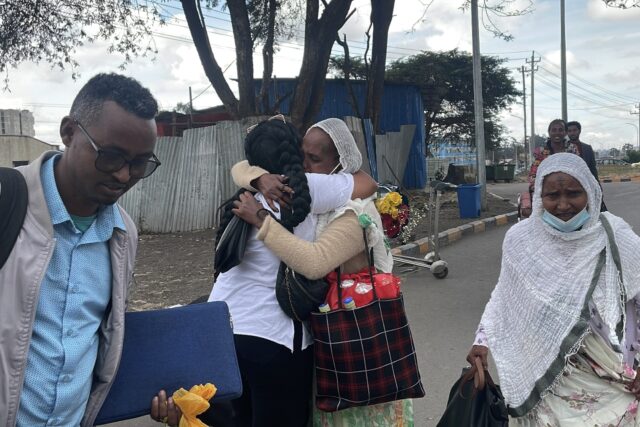The United States on Saturday hailed a pullout from northern Ethiopia of Eritrean forces whose presence had been viewed as a key stumbling block in a landmark peace deal with rebels.
US Secretary of State Antony Blinken spoke of “the ongoing withdrawal” of Eritrean troops in a telephone call with Ethiopian Prime Minister Abiy Ahmed, whose partnership with his country’s erstwhile rival Eritrea had soured his relationship with Washington.
Blinken called the withdrawal “significant progress” in the African Union-led November 2 agreement signed in the South African capital Pretoria that has largely ended the brutal two-year war.
“The Secretary welcomed this development, noting that it was key to securing a sustainable peace in northern Ethiopia, and urged access for international human rights monitors,” State Department spokesman Ned Price said in a statement.
Witness accounts have spoken of troop movements out of the Tigray region by troops from Eritrea, which has made no official statement.
But it remains unclear if the movement of troops is part of a plan for a full withdrawal or if some Eritrean troops will remain.
Blinken also voiced continued concerns about instability in Oromia, another region in the diverse country, where a separate conflict has accelerated even as calm returns to Tigray.
Omission in peace deal
The rebel Tigray People’s Liberation Front (TPLF), under heavy pressure on the battlefield, agreed in Pretoria to disarm and to re-establish the authority of the federal government.
Ethiopian authorities in turn agreed to reopen access to the region, where millions have been in dire need of food and other assistance.
But the Pretoria agreement made no provision for the withdrawal of Eritrean troops, accused by the United States and human rights groups of some of the worst abuses in the bloody conflict.
The United States and European Union have sought to put pressure on Eritrea, already one of the world’s most isolated nations, including on the country’s key Red Sea Trading Corporation.
The war broke out in November 2020 when the TPLF, which had held power in Ethiopia until the rise of Abiy, attacked Ethiopian federal military facilities in Tigray.
Abiy, who had won the Nobel Peace Prize in part for reconciling with Eritrea, unleashed a major offensive against the TPLF, which at one point had appeared close to advancing on the capital Addis Ababa.
Tigrayans and Eritreans share linguistic and other links, with Eritrean strongman Isaias Afwerki and the TPLF becoming sworn enemies as they seek dominance in the area.
In an open letter late last month, Eritrea’s embassy in the United States accused the TPLF of seeking to capture the Ethiopian government’s heavy weaponry and topple the government in Addis Ababa.
The embassy said that the rebels aimed to undo the 2018 Ethiopia-Eritrea normalization deal and that “continued destabilization of Eritrea was an integral and pronounced part of the TPLF’s war of insurrection.”
Human Rights Watch in an earlier report said that Eritrean forces massacred scores of children in the historic town of Axum in Tigray in November 2020.

COMMENTS
Please let us know if you're having issues with commenting.